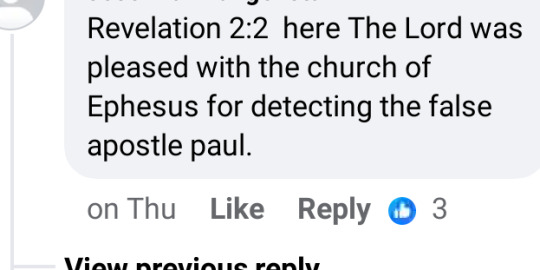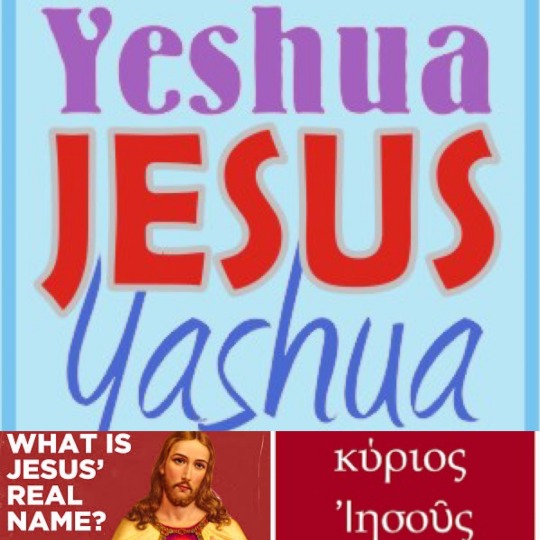#judaizers
Text
Those damn theonomists! They're all a bunch of Marcionite judaizers who promote nationalist sedition and quiverfull sex negativity!
#theonomy#theonomists#theonomist#marcion#macionitism#judaizers#christian nationalism#christian nationalists#Theonomy and Christian nationalism are not the same.#quiverfull
4 notes
·
View notes
Photo

Zionism * Jewish Power * Judaizers Graphic 23 Visit https://www.billkochman.com/Graphics-Library/ to see more. "Free Through Jesus" KJV Bible Verse List: https://www.billkochman.com/VerseLists/verse024.html Article: "Dead to the Law: God's Laws Written on Our Hearts": https://www.billkochman.com/Articles/DeadToTheLawGodsLawWritten1.html "Dead to the Law" KJV Bible Verse List: https://www.billkochman.com/VerseLists/verse397.html "Futility of Hebrew Roots Quest" KJV Bible Verse List: https://www.billkochman.com/VerseLists/verse427.html Article: "Jesus Christ or Yeshua Messiah?: More Christian Zionist Legalism": https://www.billkochman.com/Articles/jesus-christ-yeshua-messiah.html Article: "Are Christians Obligated to Keep the Sabbath?": https://www.billkochman.com/Articles/sabbath1.html "True Children of Abraham" KJV Bible Verse List: https://www.billkochman.com/VerseLists/verse270.html "True Stars of Abraham" KJV Bible Verse List: https://www.billkochman.com/VerseLists/verse102.html "Jews Are Antichrist" KJV Bible Verse List: https://www.billkochman.com/VerseLists/verse173.html "Murderers of the Prophets" KJV Bible Verse List: https://www.billkochman.com/VerseLists/verse261.html "Jews Killed Jesus" KJV Bible Verse List: https://www.billkochman.com/VerseLists/verse202.html "False Jews and False Temple" KJV Bible Verse List: https://www.billkochman.com/VerseLists/verse079.html "False Jews and Jewish Usurpers" KJV Bible Verse List: https://www.billkochman.com/VerseLists/verse377.html "Jewish False Prophets, Sorcerers and Exorcists" KJV Bible Verse List: https://www.billkochman.com/VerseLists/verse481 Article: "Welcome to Greater Israel, USA!": https://www.billkochman.com/Articles/welcome-to-greater-israel-usa-1.html Article: "Psalm 83 War False Doctrine Exposed!": https://www.billkochman.com/Articles/Psalm-83-War-Doctrine-1.html https://www.billkochman.com/Blog/index.php/zionism-jewish-power-judaizers-graphic-23/?feed_id=165447&Zionism%20%2A%20Jewish%20Power%20%2A%20Judaizers%20Graphic%2023
#All_Posts#Bills_Graphics#bible_study#bill_kochman#bills_bible_basics#christian#jew_powere#jewish_power#judaizers#king_james_version#kjv#legalism_legalist#power_of_the_jews#scriptures#verses#zionism#zionist
0 notes
Text
Not Entirely Pointless
When people have closed their eyes and ears to what the Apostle Paul has to say, it is pointless continuing with the debate.
Acts 13:50-51But the Jews stirred up the devout and honourable women, and the chief men of the city, and raised persecution against Paul and Barnabas, and expelled them out of their coasts.
But they shook off the dust of their feet against them, and came unto…

View On WordPress
0 notes
Text
No Confidence in the Flesh
4 If anyone else thinks he has reason for confidence in the flesh, I have more: 5 circumcised on the eighth day, of the people of Israel, of the tribe of Benjamin, a Hebrew of Hebrews; as to the law, a Pharisee; 6 as to zeal, a persecutor of the church; as to righteousness under the law, blameless. 7 But whatever gain I had, I counted as loss for the sake of Christ. 8 Indeed, I count everything…
View On WordPress
#Christ#death#earning#favor#grace#Judaizers#justification#legalism#life#merit#Paul#Philippi#Philippians#Philippians 3#salvation#sanctification#self-righteousness#the righteousness of Christ#works
0 notes
Text
S7E17 Galatians 2: Paul the Freedom Fighter
By: Brian G. Chilton, Ph.D., and Curtis Evelo | January 12, 2024
S7E17 Galatians 2: Paul the Freedom Fighter
The Freedom Fighter
https://www.youtube.com/watch?v=fD6VWXDt5ek%5B/embedyt%5D
Paul, accompanied by Barnabas and Titus, visited Jerusalem for a second time 14 years after his first visit. Paul found that he needed to fight for the grace of God and against the legalism of the Judaizers of…

View On WordPress
0 notes
Text
Should You Choose "The Chosen"?
Brent Pollard
Paul immediately addresses Timothy, his young son in the faith, with a warning about the Judaizers (1 Timothy 1.3–7). If you look closely at verse seven, you’ll notice that Paul says those who want to teach the Law have no idea what they’re saying. These Judaizers may wish to appear knowledgeable, but their ignorance renders them unqualified to instruct. 1 Timothy 1.7 cautions…

View On WordPress
#Aspergers#exorcist#Jonathan Roumie#Judaizers#Milton#Nicodemus#poetic license#The Chosen#Timothy LaHaye#Webster
0 notes
Photo

They tie up heavy, cumbersome loads and put them on other people’s shoulders, but they themselves are not willing to lift a finger to move them. -Matthew 23:4 📜 “If anyone causes one of these little ones—those who believe in me—to stumble, it would be better for them if a large millstone were hung around their neck and they were thrown into the sea. -Mark 9:32 📖 #holybible #jesuschrist #legalism #judaizers #stumble #leadastray https://www.instagram.com/p/CnejxWFrEYN/?igshid=NGJjMDIxMWI=
0 notes
Text







Source
13 notes
·
View notes
Text

Answering Tuvia Pollack’s “Jesus, Yeshua or Yahshua?”
By Goodreads Author & Bible Researcher Eli Kittim 🎓
Introduction
Tuvia Pollack writes for Kehila News, which seems to be a Messianic-Jewish apologetics blog. He has no formal biblical training, as far as I know. According to the Kehila news blog, “Tuvia Pollack is an unpublished writer of historical fiction novels depicting Judeo-Christian relations throughout history.”
According to his own words, Mr. Pollack is “an Israeli Messianic Jew” who believes “in the Jewish faith … and the Old and New Testament.” He wrote an essay (“Jesus, Yeshua or Yahshua?”) in which he’s basically trying to establish the notion that the Greek name for Jesus (Ἰησοῦs) in the New Testament comes from the Hebrew Yeshua or Yahshua, and he therefore concludes that it doesn’t really matter what we call the messiah. In other words, we can call him any of the 3 names that he mentions above. However, his whole thesis is flawed because he doesn’t understand the finer points of biblical scholarship and how details often go unnoticed. I will not go over his entire paper but rather explore a few key comments that he made therein.
Does it Matter What We Call the Object of Our Worship?
In reference to Jesus, Mr. Pollack writes:
Calling on his name is what mattered,
whether you would say Iesous as the
Greeks would, or Yeshua as the Jews would.
Not true. The New Testament is very specific with names, especially with the name that is above all other names. If any form of the name of Yeshua would do, then that means that any form of the name of God would do as well, right? Wrong! Acts 4:12 (NJB) declares:
of all the names in the world given to
men, this is the only one by which we can
be saved.
Notice that the NT doesn’t say “Salvation is found in no one else” except in Yahweh. Yahweh is never once mentioned in the NT. Not once! The name Elohim is never once mentioned in the NT either. Neither Yeshua nor Yehoshua are ever mentioned in the New Testament. Not even once! The only name that we are commanded to call on is Ἰησοῦς (translated into English as Jesus). We should not overlook this state of affairs. If the New Testament doesn’t even mention the name Yahweh, why would a Christian call on Yahweh instead of Jesus? Yet there are many so-called Christians who never mention the name of Jesus but keep praising Yahweh who is never mentioned by name in the Greek New Testament. Isn’t that bizarre, if not cultic? By that logic, why would a Christian call on Elohim or Yahshua in time of trouble? After all, we must know who we serve and who we worship. Throughout the New Testament, Christians are not instructed to call on Allah, Yahweh or Yahshua. They are repeatedly told to call on the “King of kings and Lord of lords” (Rev. 19.16). There is only one name associated with that title, namely, Christ Jesus (Χριστὸς Ἰησοῦς)! After all, that’s the whole point of the New Testament’s revelation, namely, that Jesus is God and the great “I AM” (Rev. 1.8; 22.13). The NT trumps the OT. Therefore, we should not impose OT theology on the NT. Rather, we should get our final revelation of Iesous from the NT per se!
A Bad Theology Based On a Mistranslation
Pollack writes:
When the New Testament was written in
Greek, the name of the Messiah is said to
be Iesous ‘because he will save his people.’
That’s an unfaithful translation, which is based on a Hebrew theology that the name of Jesus is derived from Jewish sources. Mr. Pollack doesn’t understand Greek, so he’s relying on English translations to carry him through. Allow me to explain. Here is the critical Greek text (original text). Mt 1.21 (SBLGNT) says:
τέξεται δὲ υἱὸν καὶ καλέσεις τὸ ὄνομα
αὐτοῦ Ἰησοῦν, αὐτὸς γὰρ σώσει τὸν λαὸν
αὐτοῦ ἀπὸ τῶν ἁμαρτιῶν αὐτῶν.
My Translation:
She will then bear a son and you will call his
name Ἰησοῦν; he indeed will save his
people from their sins.
Keep in mind that this verse neither explains the name Ἰησοῦν as an Aramaic or Hebrew name, nor does it define it etymologically as a linguistic transliteration, translation, or pronunciation from the Hebrew language. This is precisely where *Hebrew Roots Theology* twists the Greek to make it say what it wants it to say. The English (Christian) translations typically try to connect the name with a cause, and so they’ll usually take the word γὰρ (which very often doesn't mean “for,” according to Bill Mounce) and they’ll try to assign to it a “reason” for the name. So, they usually end up translating it as “for,” in the sense of “because.” But even though it is commonly translated as such, the Greek grammatical construction sounds very awkward when you insert the conjunction “for” in between αὐτὸς and σώσει. It would literally read: “he for will save.” Just to give you an example, John 4.44 reads:
αὐτὸς γὰρ Ἰησοῦς ἐμαρτύρησεν ὅτι
προφήτης ἐν τῇ ἰδίᾳ πατρίδι τιμὴν οὐκ ἔχει.
Translation (NJB):
He himself had declared that a prophet is
not honoured in his own home town.
Notice that we have a similar clause: αὐτὸς γὰρ Ἰησοῦς. Where is the translation “for” in this verse? Nowhere! The conjunction γάρ is translated as “himself.” In many other cases, γάρ is translated as “indeed.” In fact that is the correct translation, here, in Mt 1.21 (My Translation):
She will then bear a son and you will call his
name Ἰησοῦν; he indeed will save his
people from their sins.
There is no explanatory factor here, just that Ἰησοῦς will indeed save his people. The term “indeed” acts as an assurance or a reaffirmation that this statement is in fact true.
Mr. Pollack doesn’t take into account the fact that Hebrew was a consonantal writing system with no vowels. That’s why we don’t really know what the tetragrámmaton יהוה (transliterated as YHWH) sounded like phonetically. Nor do we know what these other names sounded like. These are approximations at best, yet Mr. Pollack writes about these names as if they were written in stone and well known.
What Happens if the Greek New Testament is Suddenly Changed into the Hebrew New Testament?
Mr. Pollack then goes on to write that no matter what you call Jesus, it doesn’t really matter. Really? Could you call him Allah? Or Yahweh? Or Elohim? Or Lucifer? He mentions how some Christians abhor Judaizing, which I will get to in a minute. Judaizing is actually very dangerous. This is an attempt by the Hebrew Roots movement to revert Christians back to Judaism, to the laws of Moses, the Hebrew covenants, and the Sabbath, while pretending that Jews don’t really need Jesus to be saved because there are actually 2 groups of people within Christianity: the Jews and the church (Dual-covenant theology). Not only that, but they turn the Greek New Testament into a Jewish book, and they also manipulate the Greek words by changing them into Hebrew. This is a complete corruption of the Greek text, and of Christian theology. How many times have you heard the alpha and omega being declared as the aleph and the tav? Or Jesus being referred to as Yeshua Hamashiach? Others try to interpret the Greek NT passages by using the Hebrew language. Does that sound like a proper method of exegesis, or does it sound like a corruption of the inspired text? It’s like trying to understand Polish literature through the Chinese language. At any rate, returning to our vignette, Pollack objects to the Christian attack on Judaizers, and writes:
‘Saying Yeshua instead of Jesus is
Judaizing.’ Will you then please tell
me, what we Israeli Hebrew speakers are
supposed to say? How should we address
him in Hebrew? Do you expect us to adopt
the Greekified version instead of his original
name?
But the Greek version contains his original name, which is given to us in the Greek New Testament by God. Anything else is a perversion and a corruption of God’s word. Otherwise, we’re disrespecting the NT by implying that only the OT is inspired. When Mr. Pollack tries to usurp the original name that is inspired by God, and supplant it with a foreign one, he’s not only violating and corrupting God’s word, but he’s also imposing his own Jewish theology on the text, rather than respecting the principles of textual criticism.
By that logic, Christians should still call on Yahweh. But God is never mentioned as Yahweh in the NT. Jews may not care, but Christians do care and want to call God by his proper name. If we don’t know which God we believe in, and which God we serve, or whom we worship, then how can we even claim to be Christians who follow Christ? Calling and praising Yah is not Christianity. It’s Judaism.
Is the Ἰησοῦς of the Septuagint the Exact Same Name We Find in the New Testament?
Moreover, Mr. Pollack uses the logic that since the Book of Joshua in the Septuagint (LXX) translates the name Yeshua as Ἰησοῦς, then the matter is officially settled. It must come from Hebraic sources. Here’s the backstory. Joshua, son of Nun——who later succeeded Moses as the chief leader of the Israelite tribes——was originally called Hoshea (הוֹשֵׁעַ Hōšēaʿ), and Moses changed his name to “Yehoshua,” which afterwards became shortened to “Yeshua.”
However, this is akin to a genetic fallacy. A genetic fallacy occurs when an argument is based on a word’s origin or history rather than its content. It asserts that a word's historical meaning is its only valid meaning and that its current meaning is invalid. But anyone who studies philology and linguistics knows that names and words change and evolve over time. For example, the word “nice,” derived from the Latin nescius, originally had a negative connotation and meant “unaware,” or “ignorant.” That is not what the word “nice” means today. There are many similar examples. In fact, many classical Greek words began to have different meanings or connotations in Koine within only a few hundred years. The point is, the meaning of words is not static. It changes over time, just as languages change and evolve. All languages undergo diachronic changes. Therefore, a name that was once ascribed to a Hebrew man named Hoshea, son of nun (based on a Hebrew meaning), may not have the same etymology as a diachronic name assigned to a different figure, centuries later, in a different language and based on a Greek meaning. From a philological standpoint, that’s the key difference between the LXX and the NT rendering of Iesous. Whatever the name may have meant in the 3rd century BC, it had a significantly different meaning centuries later as it was assigned to the Son of God. The name Iesous might have had the same referent in both the LXX and the NT but not necessarily the same sense (cf. Heb. 4:8). In fact, the argument of whether or not the NT Ἰησοῦς is a distinctly Greek name or a Hebraic transliteration (derived from the earlier LXX) is analogous to the argument of whether or not the OT Yahweh is a distinctly Hebraic name or the patron god of metallurgy (derived from the earlier Canaanite pantheon). It’s the exact same argument with the exact same conclusion. Although the name Yahweh is shared by both religions, Jews rightly believe that the earlier Canaanite Yahweh is not the same as the Yahweh of the Old Testament. In the same way, the earlier Ἰησοῦς of the LXX bears no resemblance to the Divine Ἰησοῦς of the New Testament!
Here’s a case in point. Cyril of Jerusalem was born at or near the city of Jerusalem and was steeped in the writings of the Christian scholars. He was a learned theologian who obviously understood both Greek & Hebrew. He knew the Septuagint extremely well because that was his Old Testament, given that the Latin Vulgate had not been written yet. Knowing Hebrew, he obviously knew that the Book of Joshua (Yeshua) was translated as Iesous. Yet, despite all that, Cyril nevertheless considered the name Iesous to be of Greek origin. The same thing occurred with another towering figure of Bible scholarship and one of the greatest theologians of early Christianity, Clement of Alexandria. He lived very early (150 – c. 215). He was a famous Christian theologian and Bible scholar who taught at the Catechetical School of Alexandria. Some of his pupils were Origen and Alexander of Jerusalem. He was obviously steeped in the LXX and yet he, too, attributed the name Ἰησοῦς to Greek sources. In fact, the Catholic Encyclopedia writes that many early church fathers considered the name Ἰησοῦς to be of Greek origin. For instance, both St. Cyril of Jerusalem (catechetical lectures 10.13) & Clement of Alexandria (Paedagogus, Book 3) considered the name Ἰησοῦς to be derived from Greek sources. Thus, it appears that the name Ἰησοῦς has different meanings in the Hebrew and Greek languages. Cyril of Jerusalem writes:
Jesus then means according to the Hebrew
‘Saviour‘, but in the Greek tongue ‘The
Healer.’
Cyril is most likely referring to the derivation of the name Ἰησοῦς from Ἰάσων (Iásōn), meaning "healer".
see 2392. iasis (“healing”)
https://biblehub.com/greek/2392.htm
We find the same idea in Revelation 9.11 in which *the same referent* (i.e. destroyer) of an angelic king has 2 different renderings in Hebrew (Abaddon) and Greek (Apollyon).
Evidence from Within the New Testament that Ἰησοῦs is a Greek Name
As serious students of the Bible, and especially of the NT, we should not accept a Hebrew alteration or a redefinition of what the New Testament says, as this would be equivalent to an eisegesis. Regardless of what the consensus might be, we should always demand an exegesis directly from within the Greek New Testament itself. Otherwise we’re changing not only what God said, but also how he said it!
Even in the introduction of the Greek name Ἰησοῦς, never once does the New Testament EXPLICITLY say, SUGGEST, or even REMOTELY hint that it is an Aramaic or Hebrew name. Nowhere, in any NT book, do you find a Hebraic definition or explanation for the name Ἰησοῦς. It doesn’t even work as a Hebraism. If it was a Hebraic transliteration, it would have been rendered as Ωσηέ (Hoshea הוֹשֵׁעַ Hōšēaʿ). What is more, Hebraic transliterations are typically explained in the New Testament one way or another. For example:
1) In Mark 11.9, hosanna (ὡσαννὰ) is
explained.
2) In Mark 15.34; Matthew 27.46, «ελωι ελωι
λεμα σαβαχθανι» is explained.
3) In Mark 5.41, “Talitha cum” is explained.
4) In John 20.16, “Rabbouni” is explained.
5) In Romans 8.15, “Abba” is explained.
6) In Matthew 1.23, the name “Immanuel” is
explained.
The Aramaisms that exist in the Greek New Testament are typically explained or defined. By contrast, the name ΙΗΣΟΥΣ (Jesus) is *never* *ever* explained as an *aramaism,* nor defined as an Aramaic or Hebrew name.
You would think that a name as important as Jesus would **necessitate** such an explanation. The fact that there isn’t any indicates that the Greek name Iēsous is not a transliteration of Hōšēaʿ. At least not in NT times. Mt. 1.21 clearly says “you should call his name Jesus” (Ἰησοῦς). It doesn’t say that this is a pronunciation or a transliteration of the Hebrew name Hoshea or Yeshua.
The Hebrew Roots movement has attempted to turn Christianity into Judaism. Have you ever heard any pastor preaching about Ἰησοῦς? All you hear is “Yeshua Hamashiach” and Yahweh. Well, Yahweh is never once mentioned in the NT. Nor is Yashua. If God doesn’t mention them, why should we?
If people want to go back to the OT, that’s fine. But don’t call yourselves Christians and expect the third temple to be rebuilt, and the animal sacrifices to be reinstituted. Read Heb. 10.4:
Bulls' blood and goats' blood are incapable
of taking away sins.
It’s a complete rejection of Christ and his atonement. The Hebrew roots movement has also influenced Dispensationalism, to such an extent that the latter distinguishes between 2 classes of people in the Bible, namely, the Jews and the church. And they also assert that these 2 groups have supposedly two completely different programs of salvation. They believe that the Jews don’t need Jesus; they can be saved through their own covenants. And if some reasonable theologian rightly objects, he’s immediately attacked as an antisemite, or as one who resorts to replacement theology. However, the attempt to fuse Judaism with Christianity has been disastrous. In the final analysis, you either follow Christ or Moses, but not both!
#Jesus#yeshua#yahshua#Ἰησοῦs#Jewishfaith#messianicjew#Jewishapologetics#yahweh#elohim#elikittim#thelittlebookofrevelation#lxx#Greekexegesis#yeshuahamashiach#hebrewroots#Judaizing#Iesous#Hoshea#septuagint#ελικιτίμ#Ἰάσων#ἴασις#הוֹשֵׁעַ#το_μικρό_βιβλίο_της_αποκάλυψης#clement of alexandria#CyrilofJerusalem#hebraisms#book of joshua#judaism#christianity
8 notes
·
View notes
Text
المثلث الفلسطيني بين التهويد والضم
المثلث الفلسطيني بين التهويد والضم
المثلث الفلسطيني بين التهويد والضم
الكاتب : شمالي الهام
الملخص:
يدور موضوع الدراسة حول الهواجس الإسرائيلية من خطر التمدد الديمغرافى العربى على مستقبل يهودية الدولة, وأهم المواقف, والمشاريع الإسرائيلية تجاه منطقة المثلث الفلسطيني منذ عام (1949، وحتى 2020م).
وتنقسم الدراسة إلى أربع محاور يسبقهما مقدمة, ويليهما خاتمة, فالمحور الأول الإطار العام للدراسة (هيكلية…

View On WordPress
0 notes
Text
المثلث الفلسطيني بين التهويد والضم
المثلث الفلسطيني بين التهويد والضم
المثلث الفلسطيني بين التهويد والضم
الكاتب : شمالي الهام
الملخص:
يدور موضوع الدراسة حول الهواجس الإسرائيلية من خطر التمدد الديمغرافى العربى على مستقبل يهودية الدولة, وأهم المواقف, والمشاريع الإسرائيلية تجاه منطقة المثلث الفلسطيني منذ عام (1949، وحتى 2020م).
وتنقسم الدراسة إلى أربع محاور يسبقهما مقدمة, ويليهما خاتمة, فالمحور الأول الإطار العام للدراسة (هيكلية…

View On WordPress
0 notes
Text
ACTS 14:1-28
”The same thing happened in Iconium. Paul and Barnabas went to the Jewish synagogue and preached with such power that a great number of both Jews and Greeks became believers. Some of the Jews, however, spurned God’s message and poisoned the minds of the Gentiles against Paul and Barnabas. But the apostles stayed there a long time, preaching boldly about the grace of the Lord. And the Lord proved…

View On WordPress
0 notes
Photo

Zionism * Jewish Power * Judaizers Graphic 13 Visit https://www.billkochman.com/Graphics-Library/ to see more. "Free Through Jesus" KJV Bible Verse List: https://www.billkochman.com/VerseLists/verse024.html Article: "Dead to the Law: God's Laws Written on Our Hearts": https://www.billkochman.com/Articles/DeadToTheLawGodsLawWritten1.html "Dead to the Law" KJV Bible Verse List: https://www.billkochman.com/VerseLists/verse397.html "Futility of Hebrew Roots Quest" KJV Bible Verse List: https://www.billkochman.com/VerseLists/verse427.html Article: "Jesus Christ or Yeshua Messiah?: More Christian Zionist Legalism": https://www.billkochman.com/Articles/jesus-christ-yeshua-messiah.html Article: "Are Christians Obligated to Keep the Sabbath?": https://www.billkochman.com/Articles/sabbath1.html "True Children of Abraham" KJV Bible Verse List: https://www.billkochman.com/VerseLists/verse270.html "True Stars of Abraham" KJV Bible Verse List: https://www.billkochman.com/VerseLists/verse102.html "Jews Are Antichrist" KJV Bible Verse List: https://www.billkochman.com/VerseLists/verse173.html "Murderers of the Prophets" KJV Bible Verse List: https://www.billkochman.com/VerseLists/verse261.html "Jews Killed Jesus" KJV Bible Verse List: https://www.billkochman.com/VerseLists/verse202.html "False Jews and False Temple" KJV Bible Verse List: https://www.billkochman.com/VerseLists/verse079.html "False Jews and Jewish Usurpers" KJV Bible Verse List: https://www.billkochman.com/VerseLists/verse377.html "Jewish False Prophets, Sorcerers and Exorcists" KJV Bible Verse List: https://www.billkochman.com/VerseLists/verse481 Article: "Welcome to Greater Israel, USA!": https://www.billkochman.com/Articles/welcome-to-greater-israel-usa-1.html Article: "Psalm 83 War False Doctrine Exposed!": https://www.billkochman.com/Articles/Psalm-83-War-Doctrine-1.html https://www.billkochman.com/Blog/index.php/zionism-jewish-power-judaizers-graphic-13/?feed_id=160941&Zionism%20%2A%20Jewish%20Power%20%2A%20Judaizers%20Graphic%2013
#All_Posts#Bills_Graphics#bible_study#bill_kochman#bills_bible_basics#christian#jew_powere#jewish_power#judaizers#king_james_version#kjv#legalism_legalist#power_of_the_jews#scriptures#verses#zionism#zionist
0 notes
Text
What Exactly Does This Mean ?
2 Timothy 4:7-8I have fought a good fight, I have finished my course, I have kept the faith:
It basically means Paul did not give up or go down any rabbit holes during the tenure of his ministry.
When a person believes and propagates unsound doctrine and refuses to correct the fact that they proof-text scripture (isolate single verses and build an entire foreign theology around them), are in…

View On WordPress
0 notes
Text
Man-Made Means to Earn Grace-Based Salvation
1 Finally, my brothers, rejoice in the Lord. To write the same things to you is no trouble to me and is safe for you.
2 Look out for the dogs, look out for the evildoers, look out for those who mutilate the flesh. 3 For we are the circumcision, who worship by the Spirit of God and glory in Christ Jesus and put no confidence in the flesh — 4 though I myself have reason for confidence in the flesh…
View On WordPress
#by faith alone#Christ#circumcision#earning#favor#grace#Jesus#Judaizers#justification#merit#mutilation#Paul#Philippi#Philippians#Philippians 3#salvation#self-righteousness#the Apostle Paul#the Law#works
0 notes
Text
S7E16 Galatians Intro and Chapter 1
By: Brian G. Chilton, Ph.D. and Curtis “The Cowboy Apologist” Evelo | January 4, 2024
https://www.youtube.com/watch?v=–PLAqD0pGQ%5B/embedyt%5D
Galatians Intro and Chapter One
Author: The Apostle Paul. Paul was an apostle of Christ who had previously persecuted the church. He likely converted to Christ in AD 35 after seeing the risen Jesus on the Road to Damascus while on a campaign to persecute…

View On WordPress
0 notes